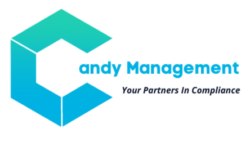Introduction
In today’s business landscape, environmental sustainability is no longer just a buzzword; it’s a critical component of operational excellence. For companies in the cleaning industry, achieving and maintaining high standards of environmental management can significantly enhance reputation, efficiency, and profitability. One of the most effective ways to demonstrate a commitment to environmental stewardship is by adopting ISO 14001. This internationally recognised standard for environmental management systems (EMS) provides a robust framework for companies to manage their environmental responsibilities effectively.
What is ISO 14001
ISO 14001 is part of the ISO 14000 family of standards, which addresses various aspects of environmental management. ISO 14001 specifically outlines the criteria for an EMS, helping organisations improve their environmental performance through more efficient use of resources and reduction of waste. The standard is applicable to any organisation, regardless of the size, type, or nature of its operations.
The Important of ISO 14001 in Cleaning Firms
Cleaning firms have a unique role in maintaining hygiene and sanitation in various settings, from residential to industrial. Given the nature of their work, these firms can significantly impact the environment through the use of chemicals, water consumption, and waste generation. Implementing ISO 14001 can help cleaning companies manage these impacts effectively and sustainably.
- Environmental Responsibility
Adopting ISO 14001 demonstrates a cleaning firm’s commitment to environmental responsibility. This standard encourages companies to identify and control the environmental aspects of their operations, minimise negative impacts, and comply with legal requirements. For cleaning firms, this could mean using environmentally friendly cleaning products, reducing water usage, and ensuring proper waste disposal. - Legal and Regulatory Compliance
Environmental regulations are becoming increasingly stringent across the globe. ISO 14001 helps cleaning firms stay ahead of regulatory changes and ensures compliance with current laws. By systematically managing compliance obligations, companies can avoid fines, legal action, and the associated reputational damage. - Cost Savings
Implementing an EMS based on ISO 14001 can lead to significant cost savings. By optimising resource use and reducing waste, companies can lower their operational costs. For instance, efficient water use and waste management can result in reduced utility bills and disposal costs. Additionally, many insurers offer lower premiums to companies with certified management systems, recognising the reduced risk of environmental incidents. - Enhanced Reputation and Market Opportunities
In today’s environmentally conscious market, businesses and consumers prefer to work with companies that demonstrate a commitment to sustainability. ISO 14001 certification can enhance a cleaning firm’s reputation, making it more attractive to environmentally aware clients. This can open up new market opportunities and give the firm a competitive edge. - Employee Engagement and Satisfaction
Employees increasingly want to work for companies that share their values. A commitment to environmental management can improve employee morale and retention. ISO 14001 involves employees in the EMS, fostering a sense of responsibility and engagement. This can lead to a more motivated workforce and better overall performance.
Benefits of ISO 14001 for Cleaning Firms
- Improved Environmental Performance
ISO 14001 provides a structured approach to managing environmental aspects, leading to continuous improvement in environmental performance. For cleaning firms, this could mean more sustainable use of resources, reduced waste, and lower emissions. - Enhanced Client Trust
Clients are increasingly looking for service providers who align with their values, particularly concerning environmental stewardship. ISO 14001 certification can enhance client trust and satisfaction, leading to long-term business relationships. - Risk Management
ISO 14001 helps cleaning firms identify potential environmental risks and implement measures to mitigate them. This proactive approach reduces the likelihood of environmental incidents and the associated costs and liabilities. - Operational Efficiency
An effective EMS can streamline operations, leading to increased efficiency. For example, by optimising the use of cleaning agents and water, firms can reduce waste and improve cost efficiency. This also leads to less environmental impact, creating a win-win situation. - Employee Involvement and Awareness
ISO 14001 fosters a culture of environmental awareness among employees. By involving staff in the EMS, companies can enhance their commitment to environmental goals, leading to better compliance and performance. - Competitive Advantage
In a competitive market, ISO 14001 certification can differentiate a cleaning firm from its competitors. It signals to clients and stakeholders that the company is committed to high standards of environmental management, providing a unique selling point.
Conclusion
ISO 14001 is more than just a certification; it’s a commitment to environmental stewardship and sustainable business practices. For cleaning firms, adopting this standard can lead to numerous benefits, including improved environmental performance, cost savings, enhanced reputation, and increased market opportunities. By implementing ISO 14001, cleaning companies can not only comply with regulatory requirements but also gain a competitive edge in an increasingly eco-conscious market.
Incorporating ISO 14001 into a cleaning firm’s operations demonstrates a proactive approach to environmental management, fostering a culture of sustainability that benefits the company, its clients, and the broader community. As environmental concerns continue to grow, there has never been a better time for cleaning firms to embrace ISO 14001 and lead the way in sustainable business practices.
